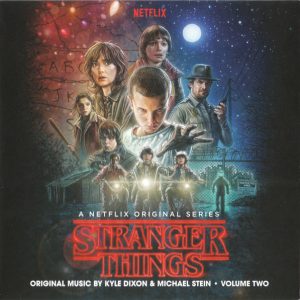

“This is quite a big change for Gay Abandon,” she says. Photograph: J Faganīut you have to know where to look for songs like these, something that Jane Edwardson, musical director for LGBT community choir Gay Abandon found out when preparing a queer-themed folk set. More recently, there’s Grace Petrie’s Black Tie, which rails against patriarchal structures and anti-trans rhetoric, and American indie-folk singer Erin Rae’s Bad Mind, which deals with how she wrestled with her own sexuality growing up in the conservative south. Tom Robinson released Glad to Be Gay in 1978, and Billy Bragg and Kirsty MacColl sang Sexuality in 1991, an elated hymn to sexual liberation. It wouldn’t be right to say that queer stories have never made their way into folk. “If you look into playlist statistics on Spotify the number of women or non-binary artists being listened to is abysmal in comparison with the number of men,” she says, adding that such artists can end up stuck in a bind: “Their ability to find audiences is directly linked to the support they receive, which is directly linked to the number of opportunities available for them.” She acknowledges that folk music has “amplified female voices throughout history,” but is addressing a lack of representation that has knock-on effects across the scene. In London in 2018, Brophy set up FemFolk with a similar impetus: to support women, non-binary, trans and intersex musicians on the UK folk scene. “It felt like a bit of a gamble: who’s gonna come? Who’s it for? But it turns out there was this whole audience of people that were waiting for it,” Cameron says. Both gigs showcased dozens of queer musicians, from established trad performers Anna Massie and Rachel Sermanni to emerging songwriters Scarlett Randle and Finn Anderson. The Bogha-frois collective debuted with a gig at Celtic Connections in 2019, and were invited back this year. Even the way stories are told down generations is that they change and reflect what’s happening at the time.” “The tradition is storytelling, and the point is that stories change all the time,” says Pedro Cameron, the Scottish singer-songwriter and fiddle player who set up Bogha-frois in 2018. As the Canadian folk songwriter Ariana Brophy says, “folk songs and clubs are overwhelmingly dominated by men, in intimidatingly masculine and heteronormative contexts.” Now, space is being carved outside the traditional club circuit.įolk songs and clubs are overwhelmingly dominated by men, in intimidatingly masculine and heteronormative contexts Ariana Brophy This month’s global Pride events acknowledge the richness of queer identity, and folk music is increasingly part of that: gay, lesbian, trans and other artists are using it to communicate their experiences and speak to a community whose stories are rare in the genre.

But while one room celebrated folk music’s recent history, the other pondered what it might yet be. The setup in both rooms was much the same – intriguing collaborations in which emerging acts shared the stage with more established ones. One floor up in the Strathclyde Suite, the Bogha-frois (or rainbow, pronounced Boa frosh) project was bringing together queer folk musicians from Scotland and beyond, with “Trans rights are human rights” marked out in black tape on a cajon drum, and a rainbow-coloured fiddle lighting up the back of the stage. In the main room of the Glasgow Royal Concert Hall was a variety evening with some of the genre’s biggest names. I n February, on the final night of this year’s Celtic Connections festival, folk music travelled through time in two directions at once.


 0 kommentar(er)
0 kommentar(er)
